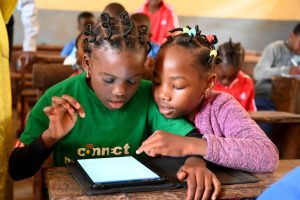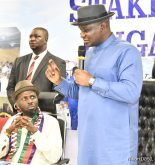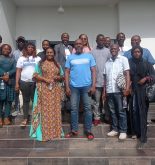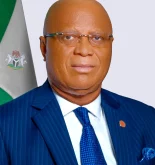By: John Mensah
Unless urgent steps are taken to halt the highly disturbing trend, West Africa may soon experience a near-epidemic of online child sexual exploitation and abuse (OCSEA).
Already, a report by the Global Initiative Against Transnational Organised Crime (GI-TOC), has shown that Nigeria, Cote d’Ivoire, and Ghana have the highest rates of OCSEA in the sub-region.
The report was unveiled in Accra, Ghana, during a media event organised by the Global Initiative in collaboration with the Norbert Zongo Cell for Investigative Journalism in West Africa (CENOZO), the Ghana Cyber Security Authority, the Economic Community of West African States (ECOWAS), and other partners.
Livia Wagner, the thematic lead on human trafficking at GI-TOC, said the data on online child sexual exploitation and abuse in the sub-region shows an acceleration in uploads since 2019.
“Research points to likely significant under-reporting of OCSEA across the case study countries. The databases that do exist, such as the National Center for Missing and Exploited Children’s (NCMEC) CyberTipline reports, point to an increase in incidents of OCSEA across the Economic Community of West African States (ECOWAS) region more broadly, since 2019.
“At about 21, 000 reported upload incidents of CSEAM per year between 2019 and 2022, Côte d’Ivoire has the highest number of NCMEC reports among the case study countries and the second highest (after Nigeria) among West African countries.
“According to INTERPOL and the FBI, criminal networks based in the country are professionalised in the use of sextortion schemes, use a range of coercion techniques and are mainly motivated by financial gains. Although difficult to triangulate given the dearth of available data, interviewed stakeholders overwhelmingly affirmed that OCSEA has been on the rise in the country,” Wagner said.
She lamented the lack of legally required victim protection and support procedures in the sub-region, adding that the government in the region relies primarily on overwhelmed non-governmental organisations (NGOs) and civil society organisations working on trafficking to provide victim support services.
The report also revealed that countries in the region lacked common elements of victim support throughout the identification, legal investigation, and rehabilitation processes.
She specifically stated that experts from Côte d’Ivoire cited a lack of systematic legal assistance for child victims in violation of the Lanzarote Convention, which required intervention programmes to be implemented and monitored for both potential and convicted sex offenders.

Director Africa at Ecpat International, Willy Buloso, encouraged journalists to adopt appropriate registers and narratives in reporting about child sexual exploitation and abuse.
He criticised instances in which people refer to materials containing child sexual abuse as “child pornography,” adding that children cannot be involved in pornographic acts because they cannot be said to have given informed consent.
Buloso defined child sexual abuse as “the involvement of a child in sexual activity that he or she does not fully comprehend, is unable to give informed consent to, or for which the child is not developmentally prepared, or that violates the laws or social taboos of society, by an adult, adolescent, or another child.
“Forcing or enticing a child or young person to take part in sexual activities, such as physical contact or non-contact activities.
“Incest, rape of a child, child sexual molestation, sexual touching of children, sexual harassment of a child, and online child sexual abuse.”
On her part, Henrietta Asamoah, a representative of Ghana’s Cyber Security Authority’s Child Online Protection department, urged the sub-regional media to mainstream online child sexual exploitation and abuse to help curb the trend.
Asamoah noted that the situation in Ghana and indeed West Africa was already calling for emergency intervention of all parties, adding that her organisation was ready to work with the media to educate and inform the public on the dangers of online child sexual exploitation and abuse.
However, representatives of media organisations at the event had advocated the involvement of relevant government officials, media proprietors, security agencies and civil society groups in the campaign.
They also decried the non-cooperative attitude of top government officials and security agencies, who often would not only decline to speak on such matters but also threaten journalists not to report cases that could potentially embarrass the government.




